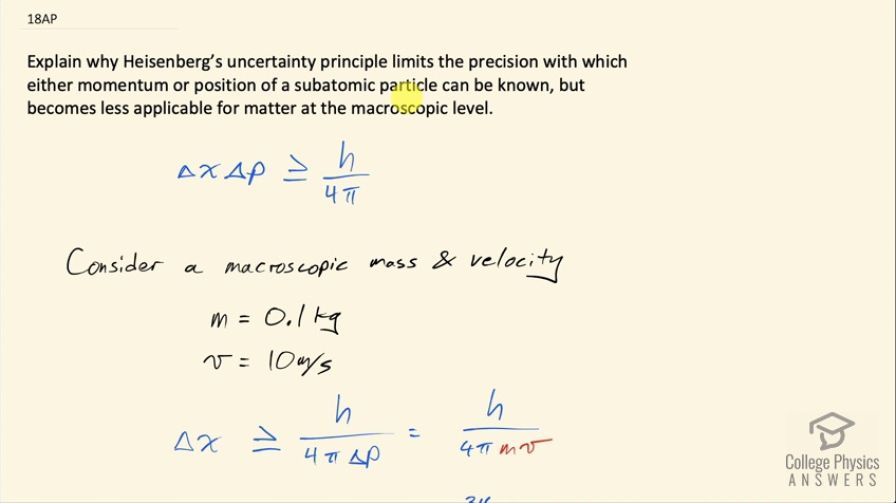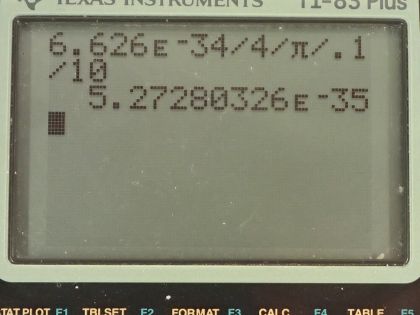Question
Explain why Heisenberg’s uncertainty principle limits the precision with which either momentum or position of a subatomic particle can be known, but becomes less applicable for matter at the macroscopic level.
Final Answer
Please see the solution video.
Solution video
OpenStax College Physics for AP® Courses, Chapter 29, Problem 18 (Test Prep for AP® Courses)

vote with a rating of
votes with an average rating of
.
Calculator Screenshots
Video Transcript
This is College Physics Answers with Shaun Dychko. Red light with a wavelength of 700 nanometers supposedly ejects an electron in magnesium metal that has a binding energy of 3.68 electron volts. In part (a), we are going to find the kinetic energy of this ejected electron it is Planck's constant times the frequency of the photon minus the binding energy. Now we are given the wavelength of the photon so we have to rewrite frequency in terms of wavelength. The wave equation tells us that the speed of the wave is the wavelength times frequency and so we can divide both sides by λ to solve for f and then replace frequency with the speed of the wave divided by the wavelength. So the kinetic energy then is hc over λ minus binding energy and Planck's constant times speed of light can be written conveniently as 1240 electron volt nanometers when we divide by the wavelength, also in units of nanometers. So 1240 divided by 700 minus 3.68 electron volts gives us negative 1.91 electron volts. Now a negative kinetic energy is nonsense so that's our answer to part (b) here so there's something wrong with the information given to us in the question; either the wavelength is too large so in fact it should be smaller than 700 or it's false to say that an electron is actually ejected.
